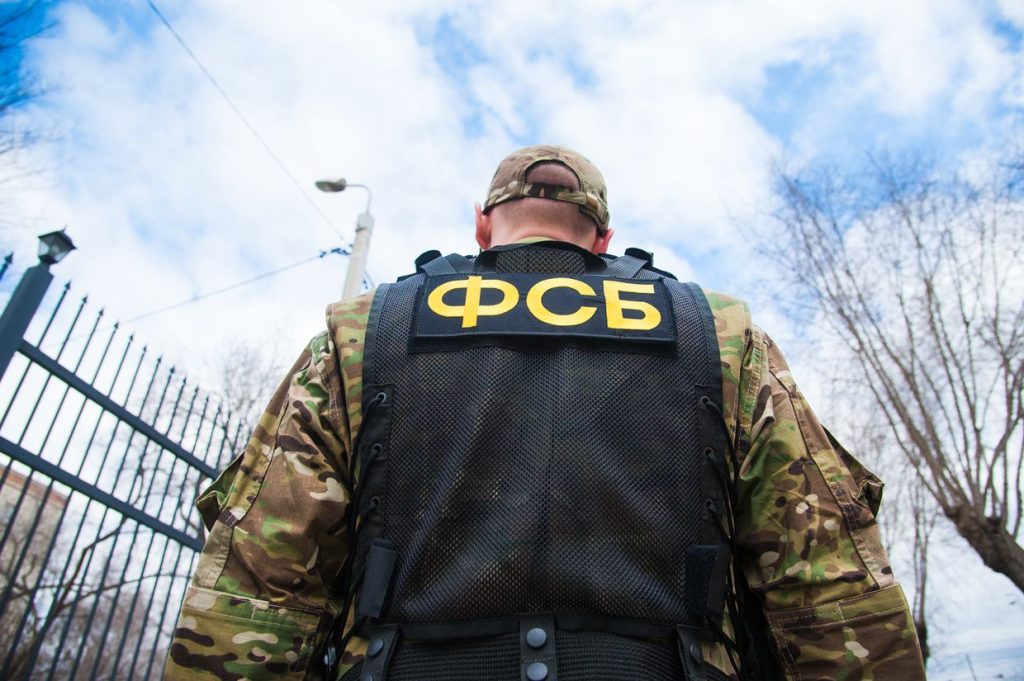The Federal Security Service (FSB) of Russia recently detained a Russian citizen who was allegedly planning an attack on a Defense Ministry official and a popular pro-war blogger. The FSB claimed that the man was acting on instructions from Ukrainian intelligence and had recovered a homemade explosive device disguised as a music speaker. The man was supposed to plant the bomb under the blogger’s car or gate and also target a high-ranking military officer by mining their car. The FSB stated that the man had conducted reconnaissance activities at the residences of both targets, but these claims have not been independently verified. This incident follows the detention of four Russians on similar charges just days earlier, all allegedly acting on a Ukrainian plot to assassinate senior military officers.
The killing of Lieutenant General Igor Kirillov in Moscow on December 17 by the Security Service of Ukraine (SBU) has raised concerns about targeted assassinations of Russian military officials. This high-profile incident is not the first of its kind, as there have been previous cases of military officials, propagandists, and perceived collaborators being assassinated. The motives behind these attacks are believed to be aimed at demoralizing Russia and punishing those involved in the ongoing conflict. The alleged involvement of Ukrainian intelligence in these plots further complicates the situation and escalates tensions between the two countries.
The FSB’s claims of foiling attacks orchestrated by Ukrainian intelligence highlight the ongoing rivalry and hostility between Russia and Ukraine. The use of covert operations to target high-ranking military figures and pro-war individuals underscores the volatile nature of the conflict in the region. These incidents serve as a reminder of the risks faced by those involved in the conflict, as well as the potential consequences of escalating tensions between the two countries. The timing of these arrests, following the death of General Kirillov, suggests a heightened state of vigilance and readiness to respond to perceived threats.
The use of homemade explosive devices and covert surveillance tactics in these alleged assassination plots reveals the lengths to which individuals are willing to go to carry out attacks. The methods employed by the suspects, including disguising explosives as everyday objects and conducting reconnaissance activities, demonstrate a level of sophistication and planning in their operations. The targeting of specific individuals, such as the blogger and military officer, suggests a deliberate effort to strike fear and instability within their respective circles. The potential implications of these actions extend beyond the immediate targets to the broader security landscape of the region.
The lack of independent verification and public comments from Ukraine on these allegations further complicates the situation and raises questions about the validity of the FSB’s claims. The absence of official responses from Ukrainian authorities leaves room for speculation and uncertainty regarding the extent of Ukrainian involvement in these alleged plots. The need for transparency and cooperation between the two countries in addressing security concerns and preventing future incidents remains crucial to maintaining stability in the region. The ongoing tensions and rivalries between Russia and Ukraine underscore the complexity of the geopolitical landscape and the challenges of managing conflicts in the region.
In conclusion, the recent incidents of alleged assassination plots and targeted attacks in Russia highlight the ongoing security threats and tensions between Russia and Ukraine. The involvement of Ukrainian intelligence in these operations, as claimed by the FSB, further complicates the situation and raises concerns about the potential escalation of hostilities. The use of covert tactics and homemade explosives in these plots underscores the serious nature of the threats faced by military officials, pro-war individuals, and other targeted individuals. The need for vigilance, cooperation, and transparency in addressing security concerns in the region is paramount to preventing further violence and instability.


